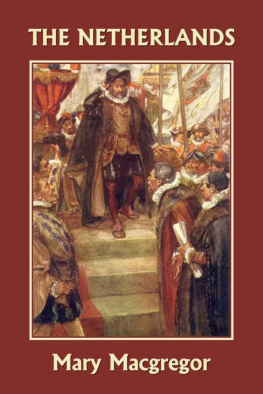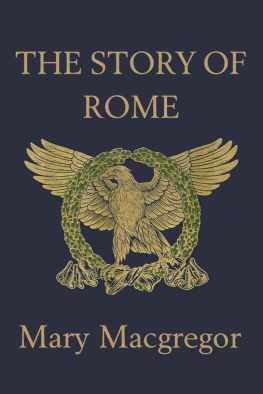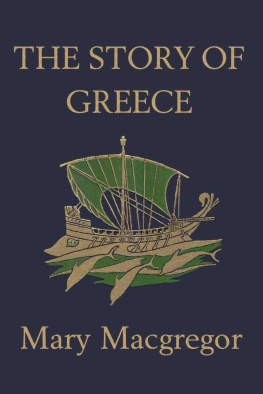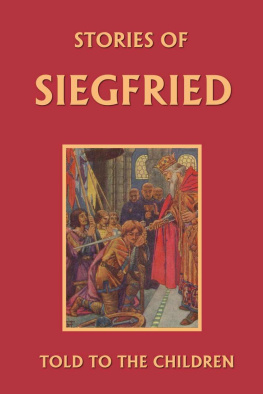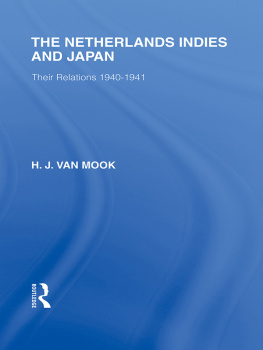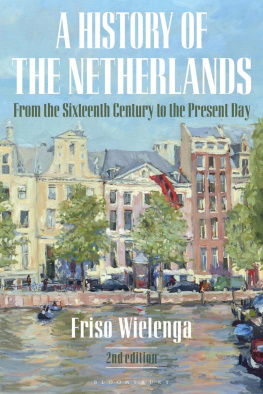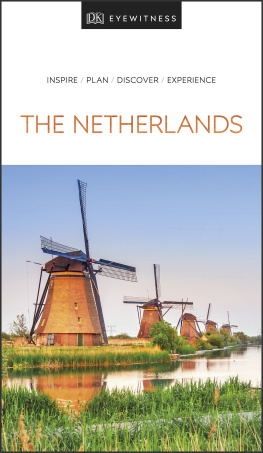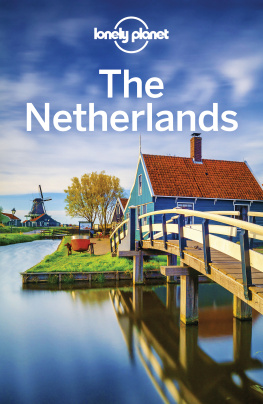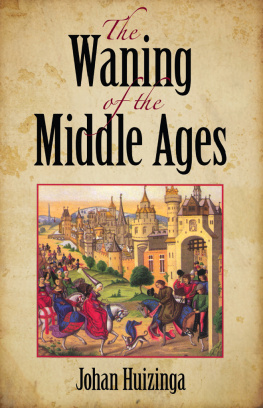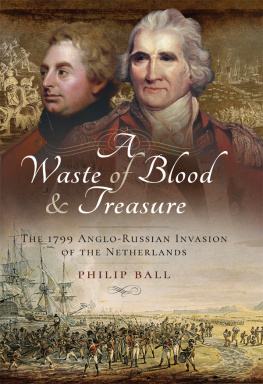The Netherlands
by
Mary Macgregor
Yesterday's Classics
Chapel Hill, North Carolina
Cover and Arrangement 2010 Yesterday's Classics, LLC
All rights reserved. No part of this book may be reproduced or retransmitted in any form or by any means without the written permission of the publisher.
This edition, first published in 2010 by Yesterday's Classics, an imprint of Yesterday's Classics, LLC, is an unabridged republication of the work originally published by T.C. & E.C. Jack of London, in 1907. This title is available in a print edition (ISBN 978-1-59915-184-7).
Yesterday's Classics, LLC
PO Box 3418
Chapel Hill, NC 27515
Yesterday's Classics
Yesterday's Classics republishes classic books for children from the golden age of children's literature, the era from 1880 to 1920. Many of our titles are offered in high-quality paperback editions, with text cast in modern easy-to-read type for today's readers. The illustrations from the original volumes are included except in those few cases where the quality of the original images is too low to make their reproduction feasible. Unless specified otherwise, color illustrations in the original volumes are rendered in black and white in our print editions.
Introduction
I believe there is no boy, the wide world over, who has not once upon a time set out in search of a hero, and found him, too, in many an unlikely corner. And thereupon he has set him up in a niche of the temple which he keeps for the most part locked, but which at rare moments he visits, reverently and with care.
I who write came one day to a little sea-swept land bound by great reaches of grass-tied dunes, and there, lingering to learn the history of the country, unawares I found my hero.
For the Romance of the Netherlands is in truth the life of William the Silent writ large. And in these pages, if the face of William of Nassau, Prince of Orange, does not look at you with living eyes, and if his voice does not vibrate in your heart in living tones, the glamour of the tale has been lost in the telling. You may shut the book in discontent.
But if you find a living man, baffled indeed and often beaten, yet one who struggles on through failure to victory, one who gives his time, his possessions, and his life for the sake of his country, then unlock the temple where your heroes stand, and in a niche apart place William the Silent, the father of his people.
And at rare moments look at him, listen to him, and, if it may be, imitate him.
Contents
CHAPTER I
The Early Struggles
L IBERTY! Clear as a trumpet call the word is heard echoing down through the centuries.
In no country rang the clarion voice more clear than throughout the provinces of the Netherlands. Brave and indomitable, the people of the Netherlands rose, even in the Dark Ages, to do battle for their rights.
Even thus in Friesland rose the pagan Radbod. Pagan he was, and yet well-nigh had he been forced to receive the Christian rite of baptism. "Where are my dead forefathers at present?" demanded Radbod, the Frisian chief, ere the rite could be performed. Rashly answered Bishop Wolfran: "In hell with all other unbelievers." "Mighty well," answered Radbod, "then will I rather feast with my ancestors in the halls of Woden than dwell with your little starveling band of Christians in heaven." Thereafter neither threats nor blows were of avail. Radbod would live a heathen to the day of his death. Radbod would do what he might to win freedom of thought and action for himself, and for those who would follow him. All honour to the brave Frisian chief who struggled that his beloved Friesland might be in very truth a free land.
Yet many were the times when the doughty champions of freedom were crushed by tyranny, and yet as many were the times when they rose, true to the master passion of their lives, the love of liberty. The Netherlands, lying low among swamps, inundated by rivers, exposed to the ravages of the sea, was redeemed through the energy of her people. "Hitherto shalt thou come, but no further," the great dykes seemed to assert and reassert in proud defiance as the ocean dashed itself vainly against the stalwart bulwarks. Bulwarks these, reared by the prowess of the people who dwelt in the land. The destructive rivers which had overflowed the fields and destroyed the homes of the Netherlands were changed into countless canals and formed great highways for intercourse and commerce.
Thus as the years went by the morasses and the barren wastes of furze, with their miserable huts and hovels, disappeared, and villages and towns were dotted all over the country. Commerce grew strong and increased, till workmen, many thousand strong, tramped along the busy streets. Great guilds were formed for the protection of the different workers, guilds of silversmiths, armourers, silk-weavers, wool-weavers, tapestry workers, gardeners, and of many another. Centuries have passed since the defiance of Radbod, the Frisian chief. Through victories and defeats the Netherlanders have reached a time of great commercial prosperity.
In the fifteenth century Holland, Flanders, Brabant, and other leading provinces were developing the resources of their country to the uttermost. The fisheries, the agriculture, the manufactures, all were in a prosperous and thriving condition. And now in 1437 Philip, the bad Duke of Burgundy, who yet was named "Philip the Good," had become through inheritance, but in part also through treachery, the possessor of the principal provinces of the Netherlands. Philip, while taxing the Provinces heavily, yet protected their commerce and manufactures, for he knew well that his power to exact the taxes he imposed depended on the prosperity of his subjects. Yet from the time of Philip the Good to the death of the Lady Marythat is, as long as the House of Burgundy ruled in the Netherlandswas there but little liberty given to the true owners of the soil, to those who by their struggles and perseverance had redeemed the country from a dreary waste of flood and swamp.
With Philip's death Charles the Bold became head of the House of Burgundy. A restless, ambitious duke he, who would never rest satisfied with a dukedom; a kingdom would better become him, could he but gain a crown. In this vain desire for kingship he oppressed his subjects in the Netherlands. He seized their wealth, he crushed their freedom. He forced on the country a standing army, and removed the supreme court of Holland from The Hague to Mechlin, insults hard to be borne by a people who had well-nigh won their way to liberty.
Charles the Bold did not gain the crown on which his heart was set, but he almost ruined the Netherlands in his effort to fulfill his ambition. He found them flourishing, self-ruling little republics. He left them with their trade and manufactures spoiled by his heavy exactions, and with the government of their Provinces destroyed. In 1477 he died, leaving the realms of Burgundy, an odd collection of provinces, duchies, and lordships, to his only child, the Lady Mary.
Charles dead, the Netherlanders roused themselves as from an evil dream. Where was the freedom for which they had striven long and fiercely? A great desire for liberty sprang up once more in their undaunted hearts. Holland and Flanders and many other provinces met together at Ghent. The burghers forgot all smaller differences, and united in a determined effort to secure the freedom of their country. The Lady Mary was herself in difficulties, for Louis XI., King of France, had seized her Burgundian possessions, and demanded the heiress in marriage for his son. In her strait the Lady Mary appealed to her faithful subjects in the Netherlands. They rallied round their young mistress, resolved to resist the greed, and, if necessary, the force of Louis. Yet they did not fail to tell her plainly that the Provinces had been much impoverished and oppressed by the enormous taxation imposed upon them by Duke Charles from the beginning to the end of his life. They added, these brave burghers, that "for many years past there had been a constant violation of their charters, and that they should be happy to see them restored." They conferred together, the Lady Mary and her doughty burghers. She secured their allegiance and they gained from her the "Great Privilege," the Magna Charta of Holland.

